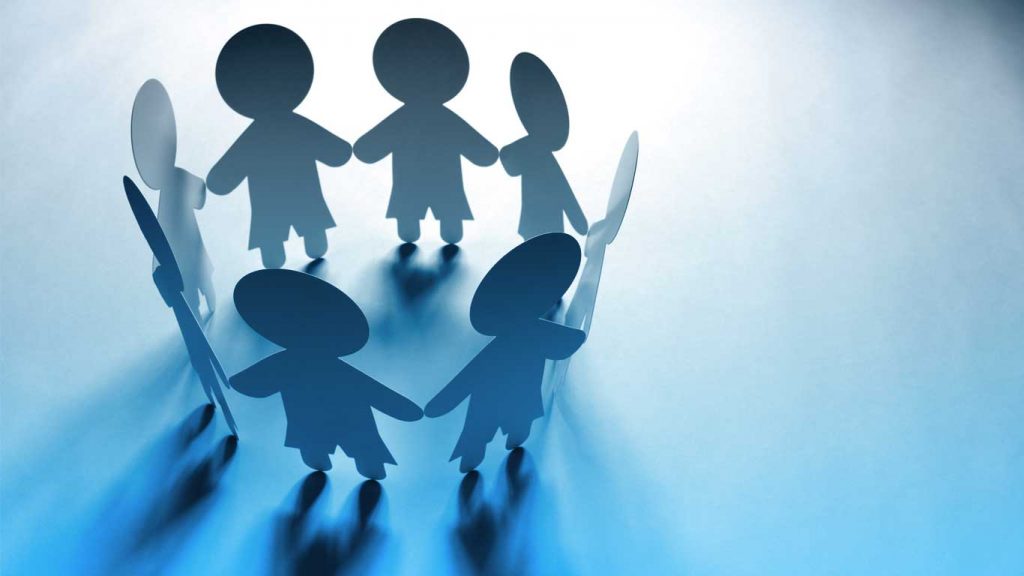What is Attachment?
Attachment was defined by the British psychologist John Bowlby as a ‘lasting psychological connectedness between humans’.
Our earliest attachments with parents or caregivers shape our perceptions of and expectations from relationships throughout our life. The quality of our first relationships impacts on how our sense of self develops. We begin to feel whether we can safely depend on people around us or not. Growing up, this will determine how much trust we have in the world.

From their numerous studies of babies and toddlers, Bowlby and his colleagues taught us that people grow up feeling various degrees of safety, acceptance and self-worth depending on the quality of care they received. More recent findings in psychology revealed that people’s attachment style forms the base of their ability to forge or fail relationships, the type of students they become or the sports they play. Surprisingly one’s attachment style predicts even the political orientation of the person.
Attachment styles and trauma
Any style of attachment, other than secure, can lead to trauma.
Babies are not born with the ability to regulate their emotions. It’s taught to them in their earliest relationships, ingrained throughout childhood, and practiced throughout life. The parent-child interaction is a system of mutual meaning making and mutual regulation.
Emotional regulation is the ability to surf the waves of life. It is necessary for managing ups and downs, dealing with change or loss, and being able to navigate healthy relationships.
Insecure or inconsistent styles of attachment lead to emotional instability. If our caregivers consistently failed to calm or protect us, were often emotionally unsupportive or they themselves were in distress then we are likely to suffer what therapists call complex or developmental trauma.
Researchers identified four types of attachments.
1. Secure Attachment
If you were fortunate, you had at least one emotionally available caregiver around you who was attuned to your needs. They responded to your physical needs, your calls for attention and comforted you if you were upset. This is how a ‘good enough’ parent (a terminology used in psychology) or caregiver responds to their infants. This terminology takes into account that life is not perfect, but ‘good enough’ means that you mum or dad was overall nurturing and they made up when disruptions occurred.
As a result, you are likely to be open, confident, feel safe in the world and are able to develop stable relationships. Closeness and connecting feels comfortable but you can also enjoy independence. You recognise and regulate your emotions as they appear. You can communicate your needs, set your boundaries and bounce back from setbacks.
2. Avoidant Attachment
If parents and caregivers constantly rebuff their baby’s distress signals and calls for love then the infant’s confidence in those adults deteriorates. Perhaps parents discourage crying and the expectation is that the baby ‘grows up’ quickly in order to stop being a nuisance.
If you had emotionally unavailable parents you learned to rely on yourself and become less engaged and intimate with other people. Consequently, you are likely to be highly self-sufficient and task oriented. However, you can also become emotionally removed, afraid of forming lasting bonds and find it hard to open up or ask for support.
3. Anxious Attachment
Infants may experience that the responsiveness of their caregivers is inconsistent. When seeking comfort they receive treatment that varies in style and intensity from dismissal to harshness. Babies in this environment soon learn that they need to express inconsolable distress or anger in order to gain the attention of their parents. They cling instead of playing and sway between whinging and anger.
As an adult with an anxious attachment style, you focus on cues of your ‘relative position’ in relationships, at work or social groups. Therefore you can be hyper-vigilant for signs of rejection. You may fear abandonment and pick fights in order for you to be the one who breaks up a relationship. With a ‘glass half empty’ view on the world, complaining and staying continuously dissatisfied are other possible outcomes of this attachment style.
4. Disorganised Attachment
Parents or caregivers should be the safe haven for babies. If instead they are the source of terror, their child will grow up experiencing ‘unresolved trauma’ with devastating effects on their life. Having frightening, neglectful or abusive parents makes the child confused because of the unresolvable conflict in their mind. They are instinctively drawn and loyal to their caregivers but also afraid of them at the same time.
This emotional tug of war undermines the sense of self and scars people’s mind and brain. This can result in dissociation, paranoia, borderline or multiple personality disorder as well as addictions and ‘acting out’ behaviours. I describe them as survivors of Complex (or Developmental) PTSD.
Isn’t Your Attachment Style Secure? Not Your Fault
The attachment style we developed in childhood was the best way to cope with the circumstances at hand. We needed it to survive. If you are blighted with an ‘insecure’ or worse of all, the disorganised attachment style, it’s not because you did something wrong. It formed as your best means of self-protection in childhood.
The key learning here is that, although it has been shaping your behaviours, beliefs and thinking, by recognising its origins and purpose you can overcome its adverse impacts and change in a positive way.
The Role of Therapy
I strongly believe that therapy can provide a healing process. The road to build a more secure attachment style starts by finding a trauma-informed therapist.

If you would like to understand your attachment style and how it impacts on your life, make an appointment with Anita Balogh at Swan Counselling.



